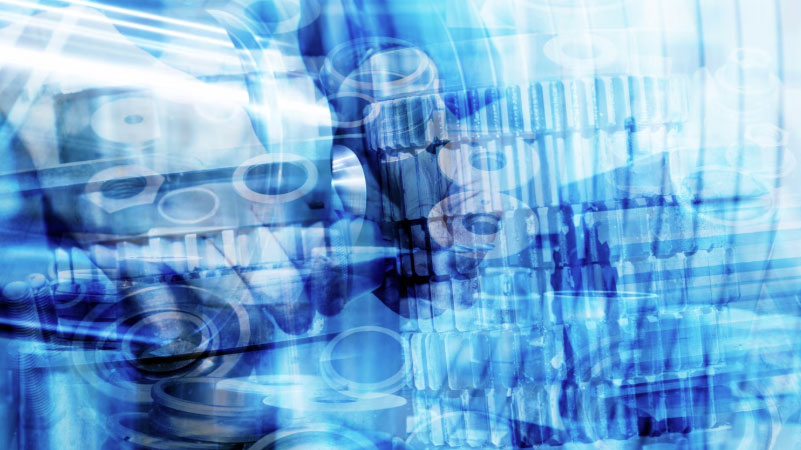The automotive industry is no stranger to technological evolution, but the integration of artificial intelligence (AI) has ushered in a new era of transformation. From streamlined assembly lines to predictive maintenance, AI is redefining car manufacturing, making it more efficient, precise, and innovative than ever before.
Efficiency: Accelerating Production Without Compromise
Efficiency is the backbone of modern manufacturing, and AI has taken it to unprecedented levels in the automotive sector.
Streamlined Assembly Lines
Traditional assembly lines revolutionized car production in the early 20th century, but AI-powered systems have taken this concept further. Robots equipped with AI can perform complex tasks such as welding, painting, and assembling with incredible speed and accuracy. Unlike their human counterparts, these machines work tirelessly, reducing downtime and ensuring consistent quality.
For example, manufacturers like Tesla employ AI-driven robotics to optimize their production lines. These robots learn from repetitive tasks, continuously improving their performance and adaptability.
Demand Forecasting and Inventory Management
AI algorithms analyze market trends, consumer behavior, and historical data to predict demand more accurately. This helps manufacturers optimize inventory levels, reducing overproduction and minimizing waste.
For instance, BMW has implemented AI systems to anticipate part requirements, ensuring just-in-time delivery and minimizing storage costs.
Precision: Enhancing Quality and Reducing Errors
Precision in car manufacturing not only guarantees product quality but also minimizes costly errors. AI systems excel in this area by ensuring every component meets exact specifications.
Quality Control
AI-powered vision systems can detect defects and irregularities on production lines that might escape the human eye. Cameras and sensors analyze components in real-time, identifying issues such as scratches, misalignments, or improper assembly.
Mercedes-Benz uses AI-driven quality control systems to inspect vehicles, ensuring they meet stringent safety and performance standards.
Custom Manufacturing
The demand for personalized vehicles is growing, and AI is enabling manufacturers to cater to individual preferences without compromising efficiency. AI systems can adapt production processes to create custom configurations, from specific paint colors to advanced interior features.
Companies like Rolls-Royce leverage AI to deliver bespoke vehicles tailored to the unique desires of their clients.
Innovation: Pioneering the Future of Mobility
AI is not just improving how cars are built—it’s also shaping what cars can do.
Design Optimization
AI-driven tools like generative design use algorithms to create optimized car components that are lighter, stronger, and more efficient. These systems explore thousands of design iterations, selecting the best options based on performance criteria.
General Motors used generative design to develop lightweight seat brackets for its vehicles, reducing weight and improving fuel efficiency.
Predictive Maintenance
AI predicts when machinery on the factory floor will require maintenance, preventing costly breakdowns and reducing downtime. By analyzing sensor data, AI systems identify potential issues before they occur, ensuring smooth operations.
Ford’s manufacturing plants employ predictive maintenance systems, which have significantly reduced unplanned disruptions.
Sustainability Initiatives
AI is also playing a critical role in reducing the environmental footprint of car manufacturing. From energy-efficient production processes to waste reduction, AI helps manufacturers adopt greener practices.
For example, Toyota uses AI to monitor and optimize energy usage across its plants, contributing to its goal of achieving carbon neutrality.
Challenges and Ethical Considerations
While AI brings numerous benefits, it also presents challenges.
- Job Displacement: The automation of tasks traditionally performed by humans raises concerns about job losses. However, it also creates opportunities for upskilling and new roles in AI development and maintenance.
- Data Security: With AI systems heavily reliant on data, ensuring the security of sensitive information is paramount. Cyberattacks could disrupt production lines or compromise proprietary designs.
- Cost of Implementation: Adopting AI technologies requires significant investment, which may pose a barrier for smaller manufacturers.
Addressing these challenges requires collaboration between industry leaders, policymakers, and technologists to create a balanced and sustainable approach.
The Road Ahead
As AI continues to evolve, its impact on car manufacturing will only deepen. Here are some trends to watch:
- Autonomous Factories: Fully automated factories driven by AI could become the norm, offering unmatched efficiency and precision.
- Digital Twins: AI-powered simulations of manufacturing processes (digital twins) will allow manufacturers to test changes and improvements virtually before implementing them on the factory floor.
- Collaborative Robotics: AI-enabled robots, or “cobots,” will work alongside human workers, combining the precision of machines with the creativity of humans.
Conclusion
The integration of AI into car manufacturing is transforming the industry, setting new standards for efficiency, precision, and innovation. While challenges remain, the potential benefits far outweigh the obstacles, paving the way for a future where cars are built faster, better, and with minimal environmental impact.
By embracing AI, the automotive industry is not only enhancing its operations but also redefining the way we think about mobility. As these technologies continue to evolve, one thing is clear: the future of car manufacturing is smarter than ever.





